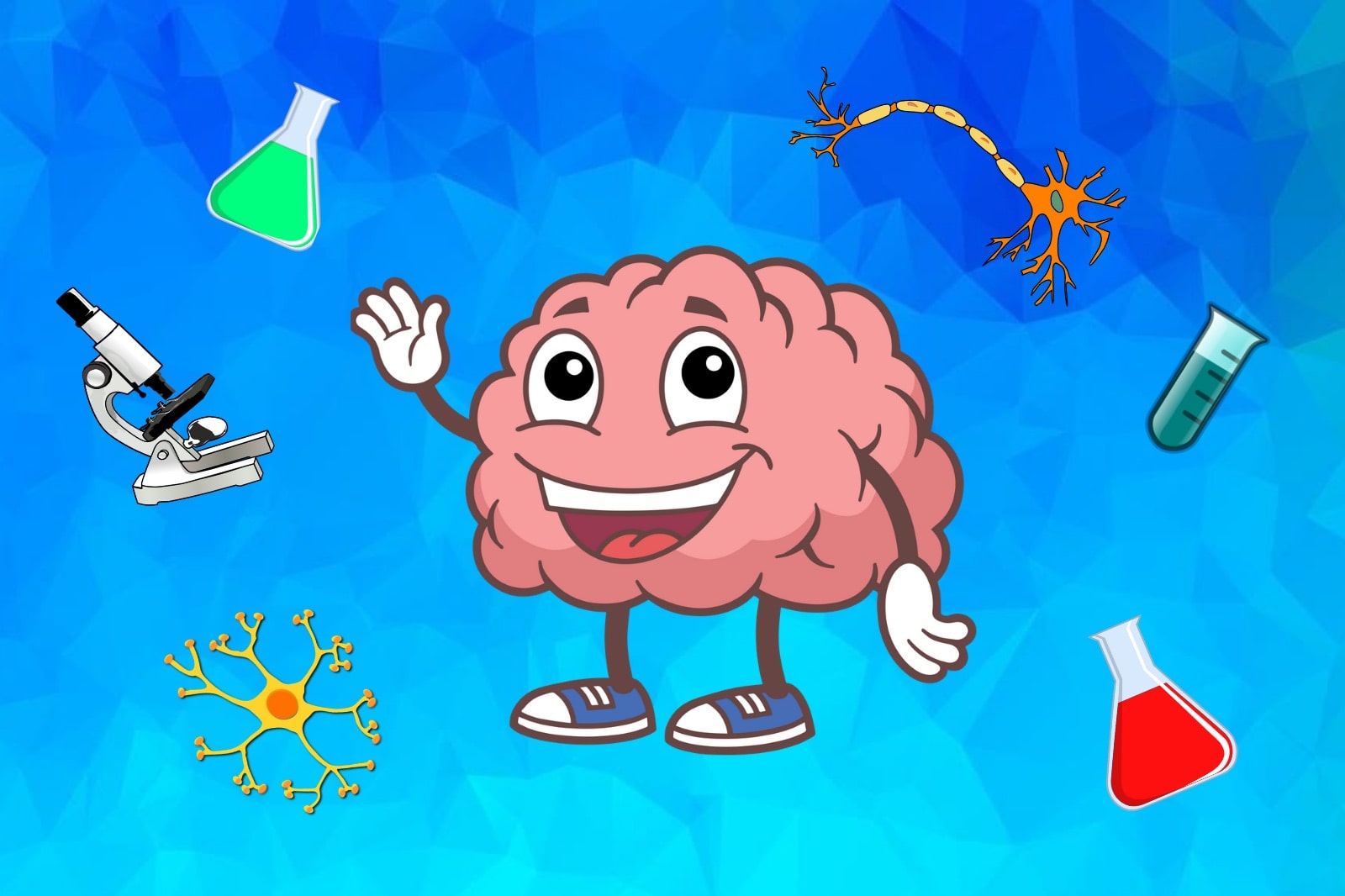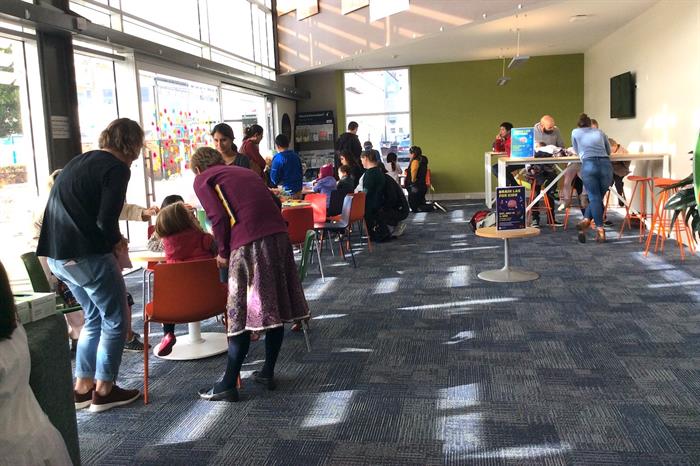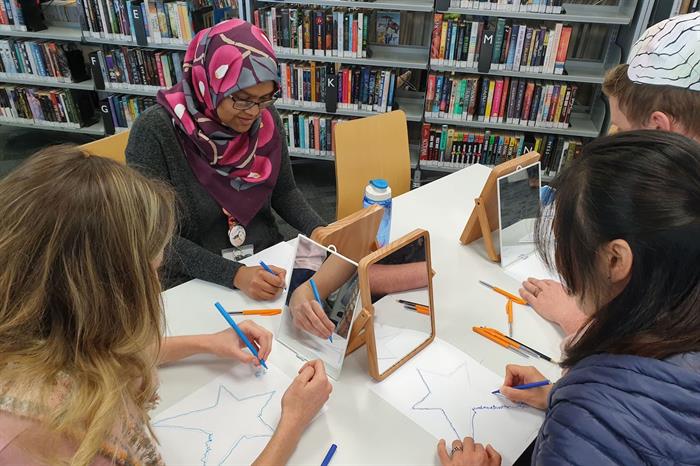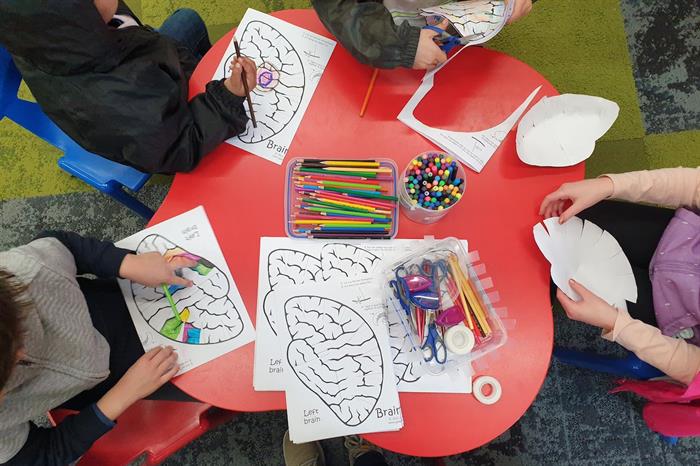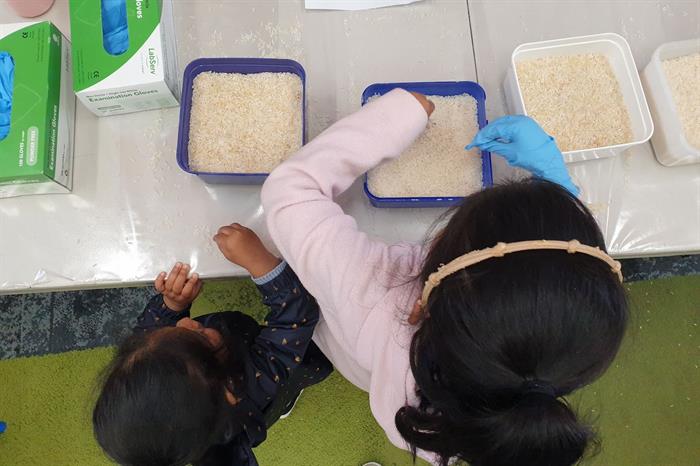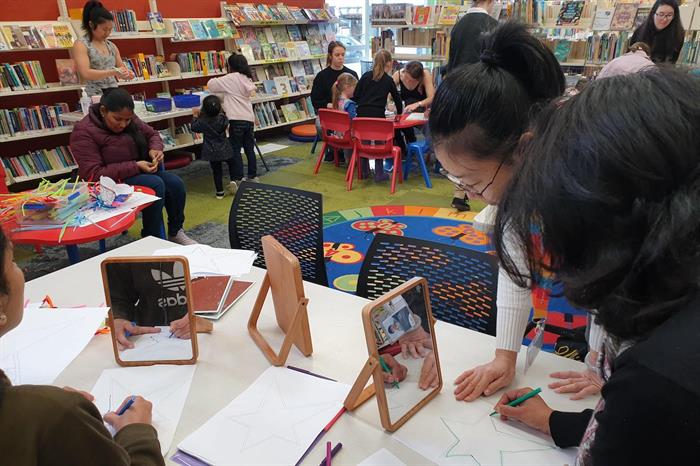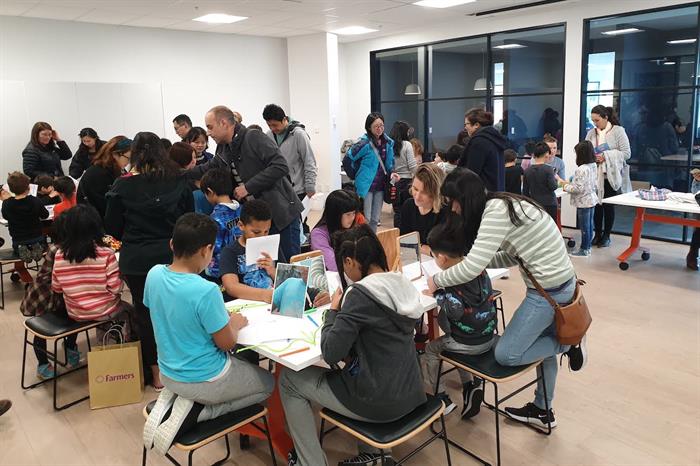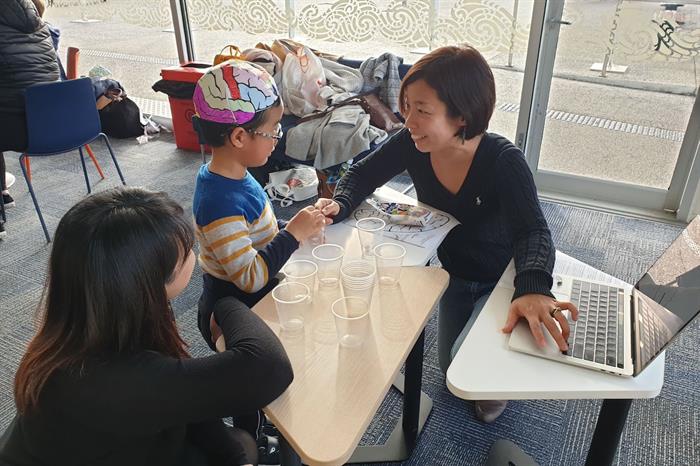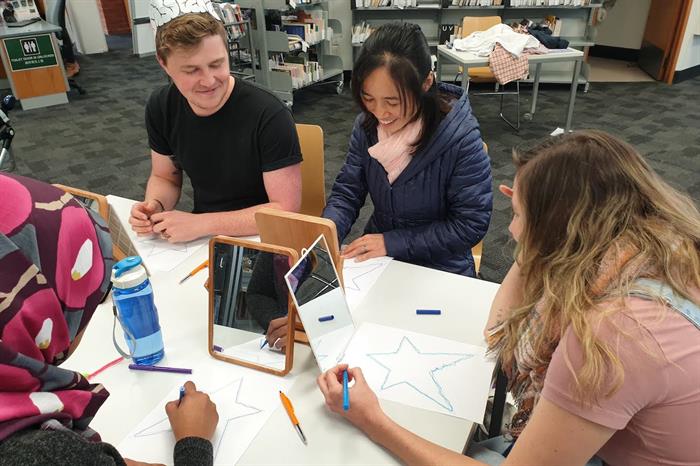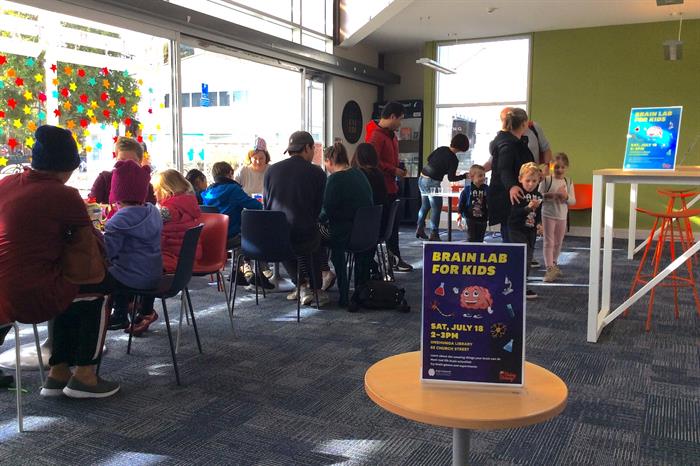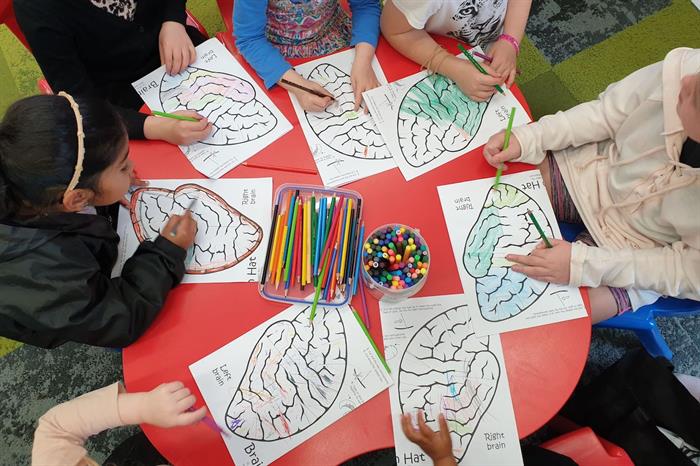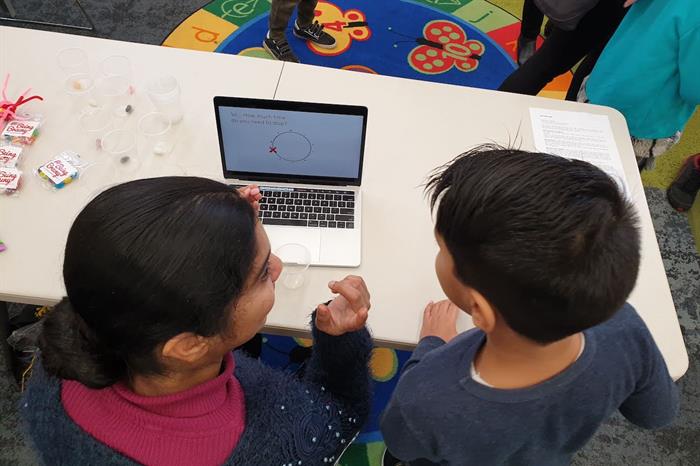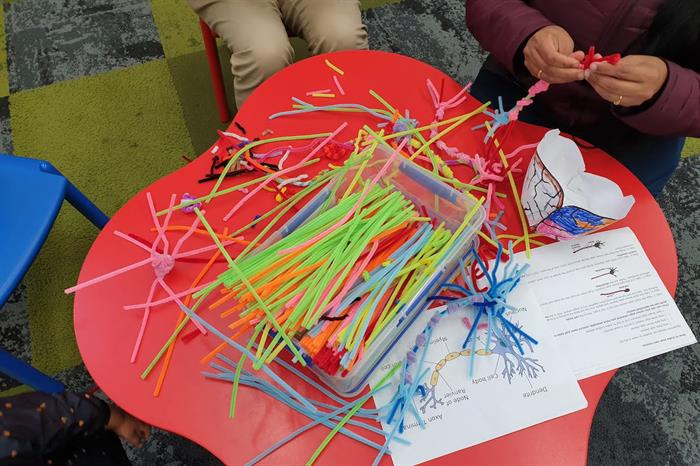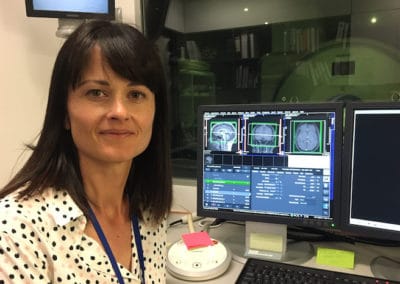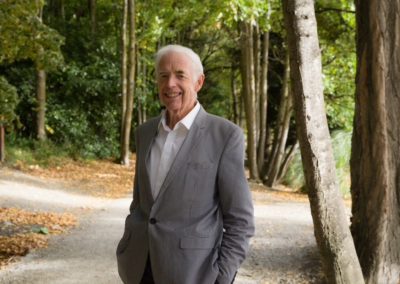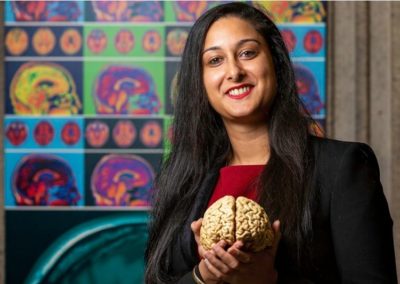While the COVID-19 pandemic and lockdown might have slowed down parts of our lives, the same cannot be said for our Being Brainy programme. With schools moving to online teaching, children having to be entertained at home, and our scientists unable to do outreach activities in person, we came up with some new ideas. Before we knew it, our researchers started recording science videos for kids, did some virtual school visits and starred on TV shows.
Once the restrictions in New Zealand had eased and things started to feel more normal, we were itching to get out and about again. And while our Being Brainy teaching resources are usually tied to the school terms, we thought the school holidays might be an excellent opportunity for us to do more.
So, we decided to partner with local libraries in Dunedin and Auckland to run school holiday events for children. We hosted seven brain labs at Port Chalmers, Mosgiel and Waikouaiti Library in Dunedin, and at Botany, Onehunga, Highland Park and Blockhouse Bay Library in Auckland. Our Dunedin events were part of the New Zealand International Science Festival, which was held as a Nano Edition from 4-12 July.
Our scientist volunteers surely kept busy – overall, we had around 500 enthusiastic visitors join our Brain Labs. Children and adults alike were keen to try their luck finding mystery objects in rice, drawing stars by looking only in a mirror, crafting neurons and brain hats, trying to win jelly beans, buttoning shirts with their non-dominant hand – while at the same time learning about how their brains work, why sometimes it doesn’t work as it should, or what a brain injury might feel like.
We were excited to meet so many smart and curious kids, be challenged by their questions and ideas, and share our fascination for the brain. Ultimately, we want to feed and grow their curiosity in science and show them that there are still so many open questions – and that they could be the ones answering them!
Many thanks to our fantastic Being Brainy volunteers for happily sharing their time, knowledge and enthusiasm with our future generation of scientists, and for making events like these possible. Thank you to the libraries for hosting and welcoming us to their communities. And last but not least, thank you to all the curious and engaged children (and parents!) who came to spend a couple of hours with us and learn about the brain.
Does your school / library / community want to host a scientist visit or Brain Lab? Get in touch with us and we’ll try to make it happen!
